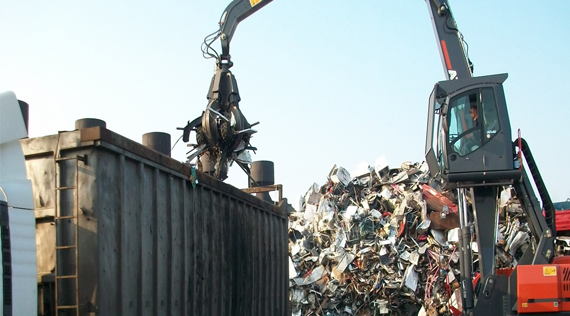
BRUSSELS (Scrap Monster): The Bureau of International Recycling (BIR) Non-Ferrous Metals Division meeting held during the recently concluded BIR World Recycling Convention has noted that scrap recycling industry must focus more on operational strengths instead of worrying too much on price volatility. Meantime, the meeting noted that the trade is currently passing through an exceedingly difficult period.
According to Murat Bayram of European Metal Recycling Ltd. (EMR), the industry still faces excess of scrap recycling facilities. The sharp drop in commodity prices has led to closure of large number of recycling facilities in the recent past. However, further consolidation is required in order to alleviate overcapacity woes, Bayram noted.
The collection of both ferrous and non-ferrous scrap grades of scrap has increased significantly with the recent upturn in scrap prices. However, scrap availability levels of certain metals including copper continues to remain extremely tight. The lack of recovery in Chinese market tends to impact the worldwide market scenario. The demand for scrap imports have weakened in South East Asian countries despite shortage of scrap in domestic market.
On the positive side, easing of sanctions on Iran has come as a big relief not only for local and international metal traders, but also for equipment suppliers. The market conditions in India have started showing signs of positive momentum in recent times. The European market too has shown signs of recovery, Bayram added.
Speaking at the Conference, Eugen Weinberg, Head of commodity research at Commerzbank AG noted that the world markets excluding China still faces the challenges of unwarranted subsidies offered by Chinese authorities. He also mentioned that huge overcapacity in China is another factor that the world markets are much concerned of. The rest of the world markets should devise mechanisms to protect themselves from the challenges posed by slowly growing Chinese economy.
Earlier, during the body’s Annual General Assembly, it was decided to form a new body that would rope in presidents of various recycling associations across the world to jointly face the challenges in global recycling trade.
Robert Fig of the London Metal Exchange (LME) reiterated the important role played by Chinese metals industry. Further, he noted that the situation is not likely to change dramatically any time soon. He opposed the policy of imposition of duties, as it impacts free trade between countries and could lead to initiation of retaliation measures by world governments.
The World Recycling Convention & Exhibition, organized by the Bureau of International Recycling took place from 29th May to the 1st June 2016 at InterContinental Hotel in Berlin, Germany. The Non-Ferrous Division meeting featured presentations by speakers followed by open forum discussion on key issues affecting the recycling industry. The panel discussion was moderated by Peter Dahmen of Germany’s Metallhandelsgesellschaft Schoof & Haslacher.
Founded in 1948, BIR was the first federation to support the interests of the recycling industry on an international scale. Today, BIR represents over 750 member companies from the private sector and 34 national associations in more than 70 countries. Together, these members form the largest international recycling federation. The BIR promotes materials recycling and facilitates free and fair trade of recyclables in a sustainable and competitive world economy.
| Copper Scrap View All | |
| Alternator | 0.31 (0) |
| #1 Copper Bare Bright | 3.65 (-0.04) |
| Aluminum Scrap View All | |
| 356 Aluminum Wheels (Clean) | 0.71 (0) |
| 6061 Extrusions | 0.62 (0) |
| Steel Scrap View All | |
| #1 Bundle | 475.00 (0) |
| #1 Busheling | 495.00 (0) |
| Electronics Scrap View All | |